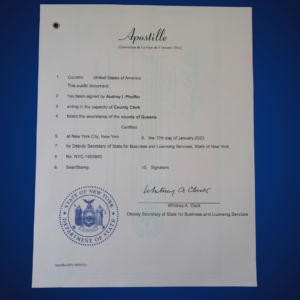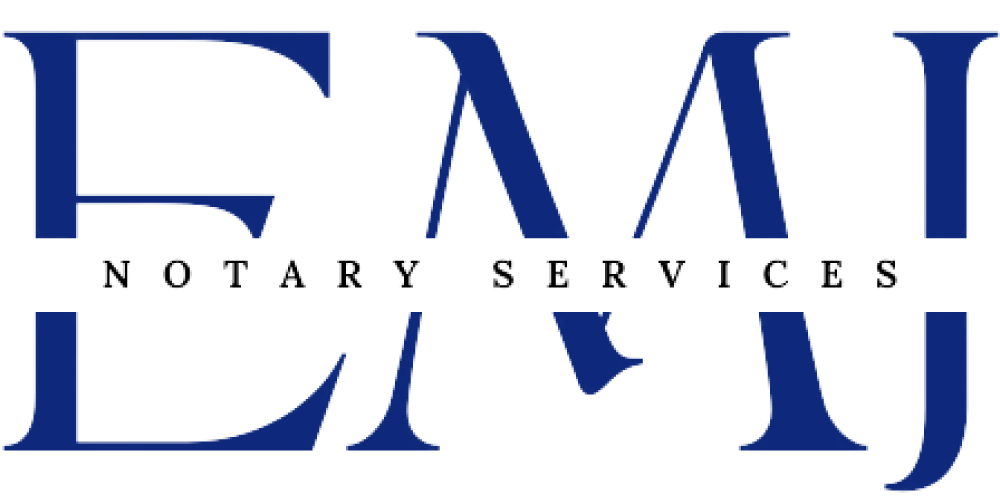
In today’s globalized world, document authentication is more critical than ever. As businesses expand internationally and individuals explore opportunities abroad, ensuring the legitimacy of necessary paperwork becomes paramount. This article will delve into the essential facts about apostilles, shedding light on their purpose, significance, and the simplified process of obtaining them.
Understanding the Purpose of Apostilles
Apostilles serve as an internationally recognized certification of the authenticity of documents. They are attached to various legal papers, making them valid in foreign countries. The primary objective of apostilles is to streamline the acceptance of documents across borders, eliminating the need for lengthy and cumbersome legalization procedures.
Importance of Document Authentication in a Globalized World
As businesses engage in cross-border transactions and individuals relocate for work, study, or personal reasons, the validity of documents becomes crucial. Apostilles play a vital role in verifying the legitimacy of paperwork, instilling confidence in all parties involved, and facilitating seamless interactions on an international scale.
What is an Apostille?
Apostille, a term originating from the French word “apostiller,” meaning “to certify,” is a standardized certificate issued by a designated authority. It confirms the authenticity of the signatures and seals on documents issued within a member country of the Hague Convention. By attaching an apostille to a document, it gains immediate recognition in other member countries without the need for further legalization.
Defining Apostille and its Origin
Apostilles were initially introduced by the Hague Convention, which was established in 1961 to make it easier to certify documents for use abroad. The goal of the treaty was to promote international cooperation and facilitate legal communication among member countries by creating a standardized approach to document authentication.
How Apostilles Differ from Regular Notarization
While both apostilles and notarization involve verifying the authenticity of documents, they serve different purposes. Notarization is a standard procedure by a notary public to authenticate signatures and witness the signing of documents. On the other hand, apostilles are specific certificates recognized internationally to verify the entire document’s authenticity for use abroad.
Why Apostilles are Crucial for International Use
When dealing with foreign authorities, businesses, or educational institutions, apostilled documents are often mandatory. Without apostilles, documents may face rejection or delay in recognition, hindering important transactions, studies, or employment opportunities overseas.
The Hague Convention
The Apostille Hague Convention is a global agreement aimed at streamlining the authentication of documents for nations that are part of the treaty. By becoming a member of the convention, countries pledge to acknowledge apostilles as a genuine verification of document authenticity from other member countries.
Explaining the Hague Convention
The Hague Convention on Apostille was adopted in 1961 in The Hague, Netherlands, and has since grown to include numerous member countries. The convention aims to facilitate the acceptance of public documents across borders by eliminating the need for consular or embassy legalization.
Countries Participating in the Hague Convention
As of the present, over 100 countries are parties to the Hague Convention, enabling a standardized process of apostille certification. The participating countries encompass diverse regions and cultures, forming an essential global network for document verification.
Apostille Process Demystified
Obtaining an apostille may seem complex, but breaking it down into simple steps can ease the process. Here’s a step-by-step guide to getting an apostille for your important documents:
- Step-by-Step Guide to Obtaining an Apostille
- Identify the Document: Determine which document requires apostille certification, such as birth certificates, marriage certificates, diplomas, or legal contracts.
- Check Eligibility: Ensure that the document is eligible for apostille certification by referring to the list of accepted documents for apostille purposes.
- Notarization: If necessary, notarize the document by a certified notary public to validate signatures and ensure its authenticity.
- Competent Authority Selection: Identify the appropriate competent authority responsible for issuing apostilles in your jurisdiction. In most places, this is often the office of the Secretary of State or a designated government agency.
- Submission: Submit the document to the designated authority and any required supporting documents and fees.
- Apostille Issuance: The competent authority will verify the document’s authenticity, and if everything is in order, they will attach the apostille certificate to the document.
Documents Eligible for Apostille Certification
A wide range of documents can receive apostille certification, ensuring their acceptance in foreign countries. Some standard document types eligible for apostille include:
- Vital Records (Birth, Marriage, Divorce Certificates)
These documents are crucial for various legal processes, such as immigration, marriage abroad, or validating parental rights.
- Academic Credentials (Diplomas, Transcripts)
Apostilled academic documents are essential for students applying to foreign educational institutions or seeking employment abroad.
- Business Documents (Contracts, Certificates)
Apostille certification on business documents adds credibility to contracts, agreements, and business registrations in foreign jurisdictions.
- Legal Documents (Power of Attorney, Affidavits)
Apostilles on legal documents ensure their acceptance and enforceability in international legal proceedings.
Selecting the Appropriate Competent Authority
Each member country designates specific government authorities responsible for issuing apostilles. Depending on the document’s nature and the place of issuance, the designated officer may vary.
Notarization Prerequisites for Apostilles
In many cases, documents must undergo notarization by a qualified notary public before obtaining an apostille. Notarization ensures the authenticity of signatures and seals on the document, adding a layer of credibility.
Verifying Document Authenticity for Apostilles
Apostilles guarantee the document’s authenticity, making it crucial to verify the accuracy and completeness of the information before applying for apostille certification.
Apostilles for Different Purposes
Apostilles serve various purposes, catering to scenarios where authenticated documents are essential. Let’s explore some common purposes for obtaining apostilles:
- Apostilles for International Business Transactions
Businesses engaging in international trade or opening branches abroad often require apostilled documents for contracts, legal agreements, and other corporate paperwork.
- Apostilles for Educational Pursuits Abroad
Students seeking admission to foreign universities or planning to study abroad may need apostilled academic credentials, such as diplomas and transcripts.
- Apostilles for Relocating to Another Country
Individuals moving to a foreign country for work, family, or personal reasons may need apostilles for vital records and other supporting documents to facilitate their transition.
Benefits of Apostilles
Obtaining an apostille reduces the bureaucratic burden of legalizing documents for international use. It streamlines the validation process, saving time and effort for both individuals and businesses.
Enhancing Document Credibility and Legitimacy
Apostilles provide an official certification of the document’s authenticity, making it readily acceptable in member countries of the Hague Convention without further scrutiny.
Streamlining Cross-Border Transactions
Apostilled documents expedite international business transactions, reducing delays and ensuring smooth dealings between parties across different countries.
Apostilles vs. Legalization
Understanding the distinction between apostilles and legalization can help individuals and businesses determine the most appropriate method for document authentication.
Understanding the Difference
Legalization is a broader term encompassing various methods of document authentication, including embassy or consular legalization. Apostilles, conversely, are a specific type of certification recognized under the Hague Convention.
When to Choose Apostille or Legalization
Deciding between apostille and legalization depends on the specific requirements of the destination country. While apostilles work well for governments part of the Hague Convention, non-member countries may require embassy or consular legalization.
Fast and Same-Day Apostille Services
For urgent matters, expedited apostille services offer faster processing times to meet strict deadlines.
Expedited Apostille Options
Many competent authorities offer expedited processing options, allowing individuals and businesses to receive apostilles within a shorter timeframe.
Pros and Cons of Same-Day Services
It should be noted that while same-day apostille services can be convenient, they often come with higher fees and require prompt action to meet tight timelines. It’s also important to remember that not all jurisdictions offer same-day or expedited services.
Common Challenges and Pitfalls
Navigating the apostille process may present some challenges and potential pitfalls. Understanding these issues can help individuals and businesses avoid unnecessary setbacks.
Handling Document Errors and Rejections
It’s crucial to ensure that your documents are accurate and free of discrepancies when submitting an apostille application. If there are any errors or authentication complications, your request may be rejected, and processing fees will not be refunded. Taking the time to double-check your information can save you from experiencing delays, complications, and financial loss.
Dealing with Apostille Delays
Apostille processing times may vary based on document volume and government procedures. Patience and timely planning are essential to circumvent delays.
Cost of Apostille Services
Several factors affect the cost of obtaining an apostille, including jurisdiction, processing times, and the number of documents needed. Knowing about these cost factors can assist individuals in making informed choices and finding service providers that fit their budget constraints.
Factors Affecting Apostille Service Fees
The complexity of the document, processing time, and additional services required can influence the overall cost of obtaining an apostille.
Finding Affordable and Reliable Providers
Researching reputable apostille service providers can help individuals and businesses find cost-effective options without compromising on quality.
Validating Apostille Authenticity
Ensuring the legitimacy of an apostille is vital to avoid fraudulent documentation and safeguard document acceptance abroad.
How to Verify an Apostille’s Validity
There are different ways to check if an apostille is genuine. You can either contact the issuing authority or use online verification tools for confirmation.
Preventing Fraudulent Apostilles
Individuals and businesses can reduce the risk of falling victim to fraudulent apostilles by being vigilant and aware of potential scams.
Apostille Alternatives
In cases where a destination country does not recognize apostilles, alternative document authentication methods may be necessary.
Apostille-Like Certifications in Non-Convention Countries
Countries not part of the Hague Convention may have authentication processes similar to apostilles. Understanding these alternatives is essential for international document use.
Legalization Options for Non-Apostille Countries
For countries that do not recognize apostilles, embassy or consular legalization may be required. Familiarizing oneself with the legalization process can ensure document acceptance in non-apostille countries.
In conclusion, apostilles are pivotal in facilitating international communication and transactions. Understanding their purpose, process, and benefits is essential for anyone seeking to utilize documents across borders. By adhering to the Hague Convention and obtaining apostilles from designated competent authorities, individuals and businesses can confidently navigate the complexities of international document authentication, empowering their paperwork for global recognition and acceptance.
